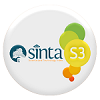EDUCATIONAL POLICY IN THE COLONIAL ERA
Abstract
Since the governance system of Dutch East Indies was applied in 1800, the Colonial Government require chief laborers from pribumi indigenous or native Indonesian people, who were able to read and write well because the number of European personnel was limited at the time. The necessity for unskilled laborers who could read, write and count was increasing due to the enforcement of Cultuur Stelsel. The necessity for administrative staff was also increasing especially in the companies and goverment institution. The goverment, therefore set up Sekolah Ongko Loro to fulfil the first need, and to fulfil the second need, then it was built Sekolah Kelas Satu (First Level School), a school for nobles or government officials. The occurence of national movement triggered the existance of wild schools (wilde scholen) were strictly eradicated by BB (Binnenlands Bestuur) while for Foreign Eastern Echnicity (China, Arabian), were given freedom to set up schools based on their language and culture. However, in those schools, historical lesson was slightly taught because the Government was worried that it would empower nationalism spirit which began to grow everywhere in early 20th century.
Keywords
pribumi (indigenous people), unskilled laborers, nobles of Robe, First Level School, Second Level School, Wild School
Full Text:
PDFDOI: https://doi.org/10.17509/historia.v14i1.1923
Refbacks
- There are currently no refbacks.
Copyright (c) 2024 Historia: Jurnal Pendidik dan Peneliti Sejarah
INDEXED
TOOLS

This work is licensed under a Creative Commons Attribution-ShareAlike 4.0 International License.
Alamat Redaksi: Gedung Numan Soemantri, FPIPS UPI, Departemen Pendidikan Sejarah, Lantai 2, Jl. Dr. Setiabudhi No 229 Bandung, 40154






